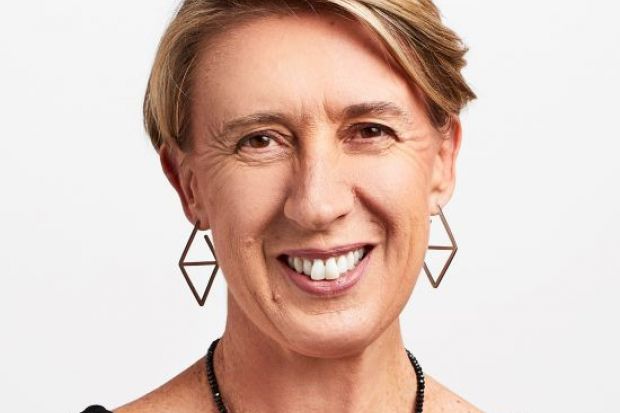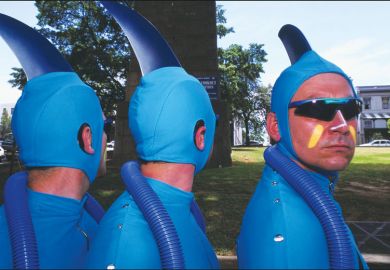Higher education institutions must build up resilience as the sector faces unprecedented challenges, Times Higher Education’s THE Live ANZ event has heard.
Universities Australia chief executive Catriona Jackson urged the industry to become “future-proof” so that “if we have this kind of crisis in the future, we’re not going to be as vulnerable”.
“Bushfires were barely finished when Covid hit,” she said, referring to natural disasters that began about a year ago. “There’s a very real sense of compounded drama.”
Australian universities, hit hard by a plunge in international student numbers, face a decline in revenue of at least A$3.1 billion (£1.7 billion) this year and, potentially, A$16 billion over four years. The equivalent of 21,000 full-time jobs are at risk.
At the same time, universities face urgent tasks that need more funding than ever. These range from setting up hardship funds for students in need to underwriting the development of Covid-19 treatments and vaccines on an accelerated timescale.
However, Ms Jackson said the Covid-19 crisis could be the mother of invention and called this difficult period “a real-life study” into the mechanics of online learning.
“Universities are very good at learning quickly. We’re actually pretty disruptive places,” she said.
She was realistic about the challenges universities faced. When asked whether students would get refunds or discounts for e-learning, she noted that “online learning is not cheaper than face-to-face delivery”. Even after campus life returned to normal, there could be fundamental shifts in teaching and learning.
For example, there may be less emphasis on large, in-person lectures – which can be easily replicated online – while fewer resources could be wasted on commuting and travelling.
But at the end of the day, she said, nothing beats being on campus in person. Students choose universities not only for academic reasons but also because they are safe, welcoming and multicultural spaces. “It’s about sitting in a classroom with students from 144 countries,” she said.
Ms Jackson said the pandemic was a time of “extraordinary uncertainty”, when it feels impossible for both students and institutions to plan ahead. “It confronts you with a blank wall,” she said, adding that universities should support students to give them “some level of confidence”.
Asked whether there would be more or fewer universities in a decade as a result of the pandemic, overseas as well as in Australia, Ms Jackson said it was difficult to say.
“Australia is different to the rest of the world. Our universities are mostly larger. Losing [some] would be a very complicated process. We’re a big country. Unlike the Americans, say, we traditionally don’t travel particularly far to go to university. People expect there will be a good one close to them.”
But Ms Jackson said there was little doubt that there would be more students in a decade. “We need more knowledge rather than less,” she said. “We’re in the middle of a terrible economic downturn, and we know that every time there’s an economic downturn, the demand for university study goes up.
“We are seeing on our campuses 20, 30, 40, in some cases 70 per cent increases in demand. A lot of people want to go, and that is a very good thing.”
Register to continue
Why register?
- Registration is free and only takes a moment
- Once registered, you can read 3 articles a month
- Sign up for our newsletter
Subscribe
Or subscribe for unlimited access to:
- Unlimited access to news, views, insights & reviews
- Digital editions
- Digital access to THE’s university and college rankings analysis
Already registered or a current subscriber?








